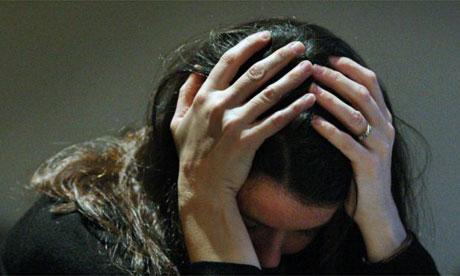Manifestos overlook mental health stigma as a health policy priority

The stigma and discrimination associated with mental health problems is, for many people, as difficult to manage as the experience of being unwell. The World Health Organisation (WHO) has said that stigma and the associated discrimination comprise the ‘single most important barrier’ facing people with mental health problems. By Rachel Wright, See Change Campaign Coordinator.
Although one in four of us will experience a mental health problem at some time in our lives, many of us are frightened by the idea of mental health problems and are reluctant to talk about mental health problems or to access support.
Significant economic and social costs are associated with mental health problems. Stigma acts as a barrier to seeking help and accessing support, which negatively affects an individual’s recovery and can result in a far higher cost to the state when help and treatment are eventually provided.
One in four (132.4 million) Europeans are affected by mental health problems every year. This resulted in an economic cost of €436 billion in 2006 or €2,271 per EU household per year. The overall economic cost of mental health problems in Ireland has been estimated at just over €3 billion in 2006. Depression is estimated to cost the EU €41 billion in direct costs and €77 billion in productivity losses. This compares to €35 billion in productivity losses for cardiovascular disease. And in addition to the economic costs, there are significant social and personal costs.
People with mental health problems consistently identify stigma, discrimination and social exclusion as major barriers to their health, well-being and quality of life. Stigma can and does contribute to:
- limiting access to housing and employment
- damaging social relationships and social participation
- reducing self-esteem and dignity
- lack of control and influence in how services are designed and delivered
- the abuse of human rights
In the run up to the election, we asked the political parties to
1. To include the reduction of stigma as a health priority in manifestos
2. To support the continuity of the new See Change campaign
While all the major parties referenced mental health to some extent in their manifestos or health policy statements, the stigma and discrimination associated with mental health problems did not feature highly as a health policy priority. Only Fine Gael made specific reference to reducing the stigma of mental ill health. Sinn Fein spoke about the need to promote cross-departmental action to combat social exclusion, prejudice and discrimination against people with mental health problems.
While See Change welcomes the various manifesto promises in relation to the provision of community based mental health services and the implementation of A Vision for Change, it is disappointing that mental ill health stigma is not included in all manifestos. The stigma and discrimination associated with mental health problems remain a huge barrier to people accessing support and services and participating in society. Only by addressing stigma can the uptake of services and indeed the design and delivery of services themselves be improved.
*************
See Change is a new national partnership that aims to reduce the stigma and discrimination associated with mental health problems. The See Change vision is that every person in Ireland can be open and positive about their own and others’ mental health. This is Ireland’s first ever national stigma reduction partnership and we are working to create a social movement to reduce the stigma and discrimination associated with mental health problems. Our message is that mental health problems should be seen as part and parcel of being human – in the workplace, at home, out and about, and in the media.
